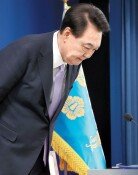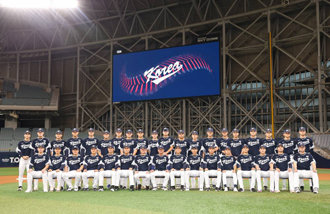Japan`s water pollution resolution and the Olympic spirit
Japan`s water pollution resolution and the Olympic spirit
Posted September. 04, 2013 05:29,
The Japanese government announced Tuesday a comprehensive plan for polluted water management. The main focus was installing a frozen soil barrier wall in underground waters near the Fukushima nuclear plant. Since the Fukushima nuclear accident in March 2011, 300 tons of underground water polluted by radioactive matter have been leaked daily, and high-density polluted water that leaked from ground storage tank were found to have flown into the sea.
The government`s measures appear to have kept in mind the voting of Olympic Games host country five days later. The government belatedly announced the measures, concerned about the negative impact it could bring on to Japan`s winning the hosting of Olympics, even as it knew that Tokyo Electric Power Corporation had no money and ability to handle polluted water. The corporation was privatized and water pollution plans are not government concerns in legal terms. However, the Fukushima accident is one of the worst nuclear plant incidents along with the Chernobyl accident, and neglect on water pollution matters is indeed a problem.
The content of the latest measures cause worries to neighboring countries. The power corporation`s previous measures include injection of 47 billion yen (473 U.S. million dollars) and establishing an on-site office. This is no solution. The power corporation has no coffers left and state support is crucial. This would be absurd in Korea is the government didn`t inject its budget.
Installing a frozen soil barrier wall means that an ice barrier wall will be set up around the nuclear plant to prevent underground water from entering. However, ice walls have yet to be verified in technological terms, and the risk is high. Management of ice walls requires 4 billion yen (40 million dollars) a year in electricity consumption. Japanese media say that if there is a blackout it is of no use. The Japanese government should open up the problems and ask for ideas and technology support from foreign countries. It is not right to try to gain votes to host Olympics by hiding the problems and depending on public sympathy.
The 1964 Tokyo Olympics was a sign of revival of Japan after a war defeat. If Japan gets to host summer Olympics in 2020, it may be able to overcome the shocks of earthquake, tsunami and nuclear accident and make a second leap. However, the Japanese government should first show will and performance of solving polluted water. Water surrounding Japan is not Japan`s territory. It is a joint asset of all people on earth and a valuable heritage to pass on to the future generation. To Korea, it is a crucial issue due to fisheries and food. Rather than building fancy Olympic facilities, the government should solve this matter as it is the way to realize the spirit of Olympics that is a competition for human peace.
Headline News
- Pres. Yoon addresses the nation at a press conference
- LX Group chairman gifts 100 million won to employee family welcoming quadruplets
- Tax-exempt shared offices in rural areas misused as tax havens
- President-Elect Trump promises 'peace through strength'
- French gambler wins 67.2 billion won by betting on Trump’s election win







